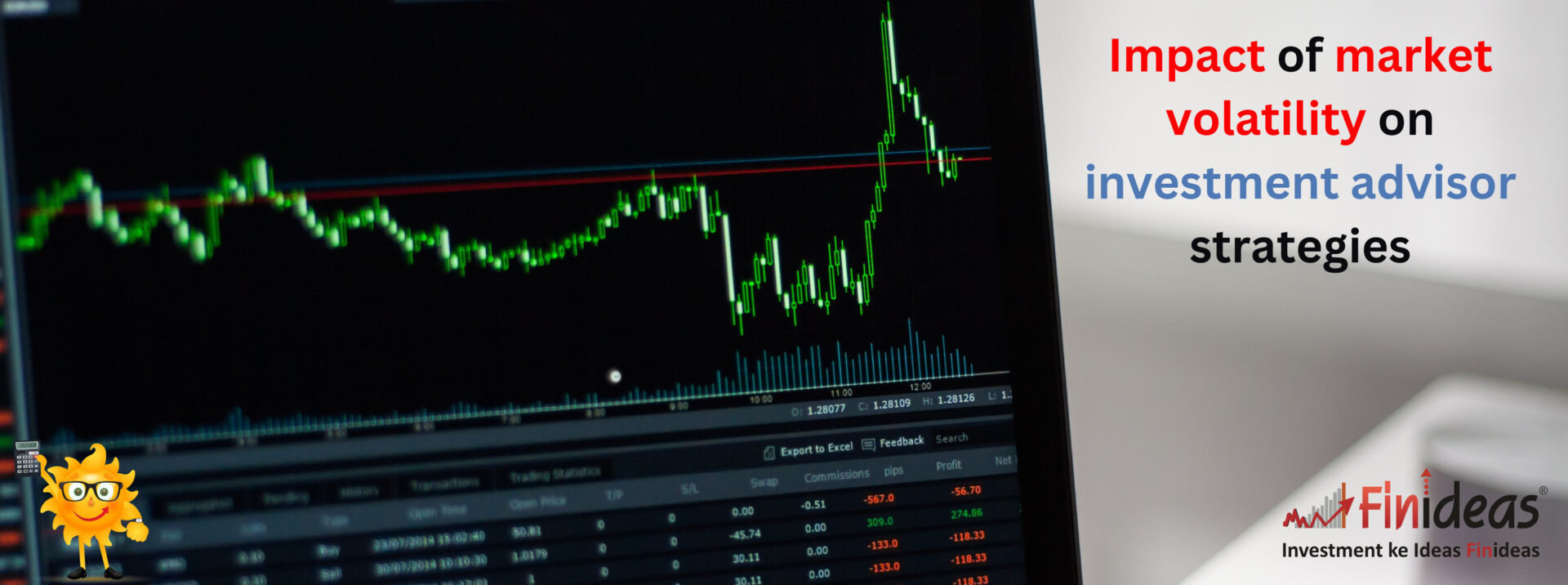The impact of market volatility on investment advisor strategies
Introduction:
Market volatility is an inherent aspect of the investment landscape, and its impact on investment advisor strategies cannot be overlooked. In the context of the Indian market, where various factors such as economic fluctuations, geopolitical tensions, and regulatory changes can cause significant market movements, understanding and effectively responding to market volatility becomes crucial for investment advisors. In this blog post, we will explore the implications of market volatility on investment advisor strategies in the Indian market and discuss how advisors can navigate these challenges to maximize returns and manage risk.
- Market Volatility and Investor Sentiment:
Market volatility often triggers fear and uncertainty among investors, leading to significant shifts in investor sentiment. During periods of high volatility, investors may exhibit a tendency to make impulsive decisions, such as panic-selling or chasing after short-term gains. This behavior can disrupt the overall stability of the market and create a challenging environment for investment advisors.
- Adjusting Investment Strategies:
In response to market volatility, investment advisors must adapt their strategies to mitigate risk and optimize returns. Diversification is a key strategy to consider during volatile times. By spreading investments across various asset classes, sectors, and geographies, advisors can reduce exposure to specific market risks and enhance the potential for consistent returns.
Another important strategy is to focus on fundamental analysis and long-term investment horizons. Rather than getting swayed by short-term market movements, advisors can identify companies with strong fundamentals and growth potential, allowing them to withstand market volatility and deliver sustainable returns over time.
- Active Portfolio Management:
During periods of market volatility, active portfolio management becomes even more critical. Investment advisors need to closely monitor market trends, conduct rigorous research, and make informed investment decisions. Regular portfolio reviews and rebalancing can help optimize allocations and ensure that investments align with the client’s risk tolerance and financial goals.
Moreover, investment advisors can consider utilizing hedging strategies to manage risk during volatile market conditions. Options such as derivatives and futures contracts can help protect portfolios from downside risks while providing potential upside opportunities. If you want to know more about Index Long term Strategy, you can visit our website.
- Communicating with Clients:
Clear and effective communication with clients is paramount during times of market volatility. Investment advisors should proactively engage with their clients, provide updates on market conditions, and address any concerns or questions they may have. It is crucial to emphasize the importance of staying focused on long-term goals and not getting swayed by short-term market fluctuations. By maintaining transparent communication, advisors can build trust and confidence, helping clients remain committed to their investment strategies.
Conclusion:
Market volatility can significantly impact investment advisor strategies in the Indian market. However, by implementing prudent investment strategies, actively managing portfolios, and maintaining open communication with clients, investment advisors can navigate the challenges posed by market volatility. Adapting to changing market conditions, focusing on long-term goals, and making informed investment decisions are key to maximizing returns and managing risk in the dynamic investment landscape.
Feel free to leave your comments and questions below! I’m here to provide further insights and address any queries you may have regarding the impact of market volatility on investment advisor strategies in the Indian market.
What are your thoughts on the above article, you can always share with us by commenting down below.
Happy Investing!

